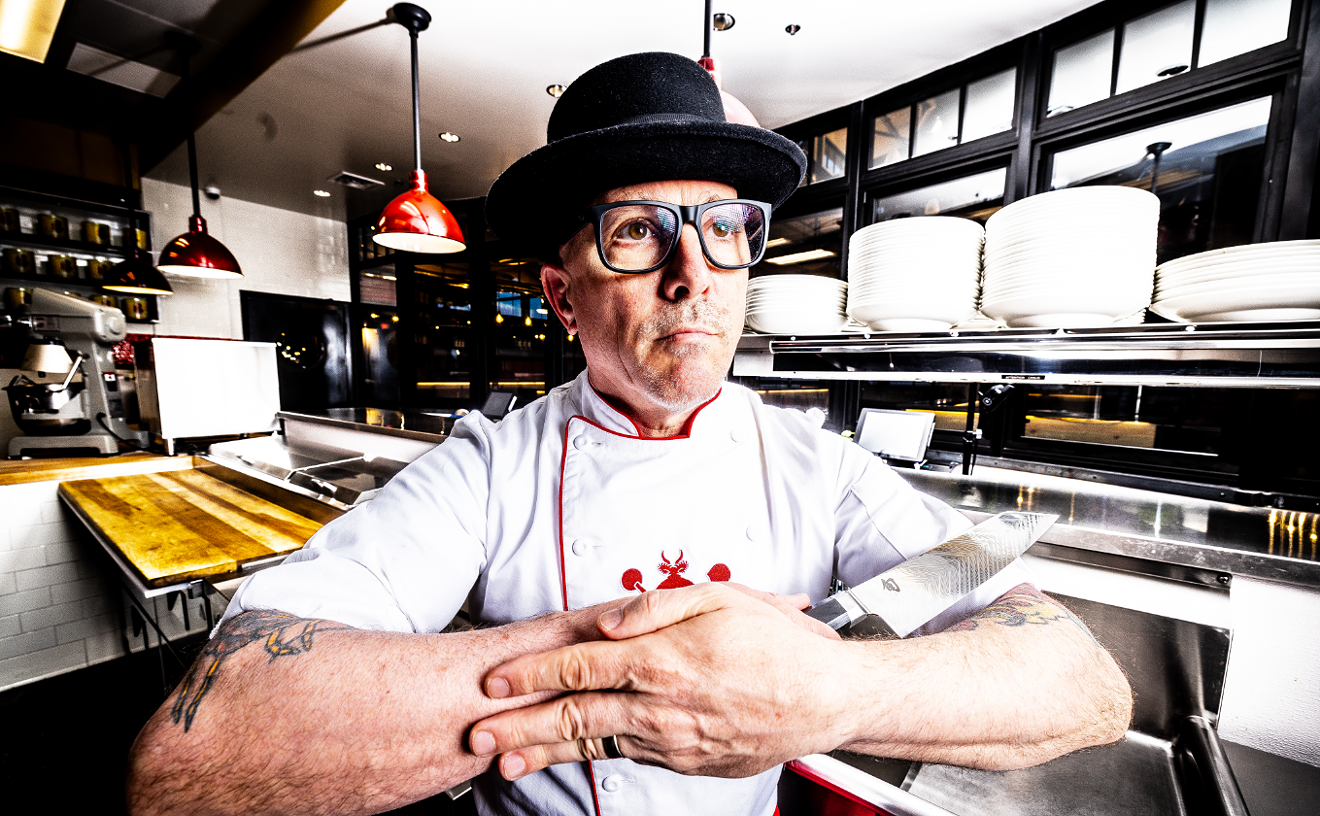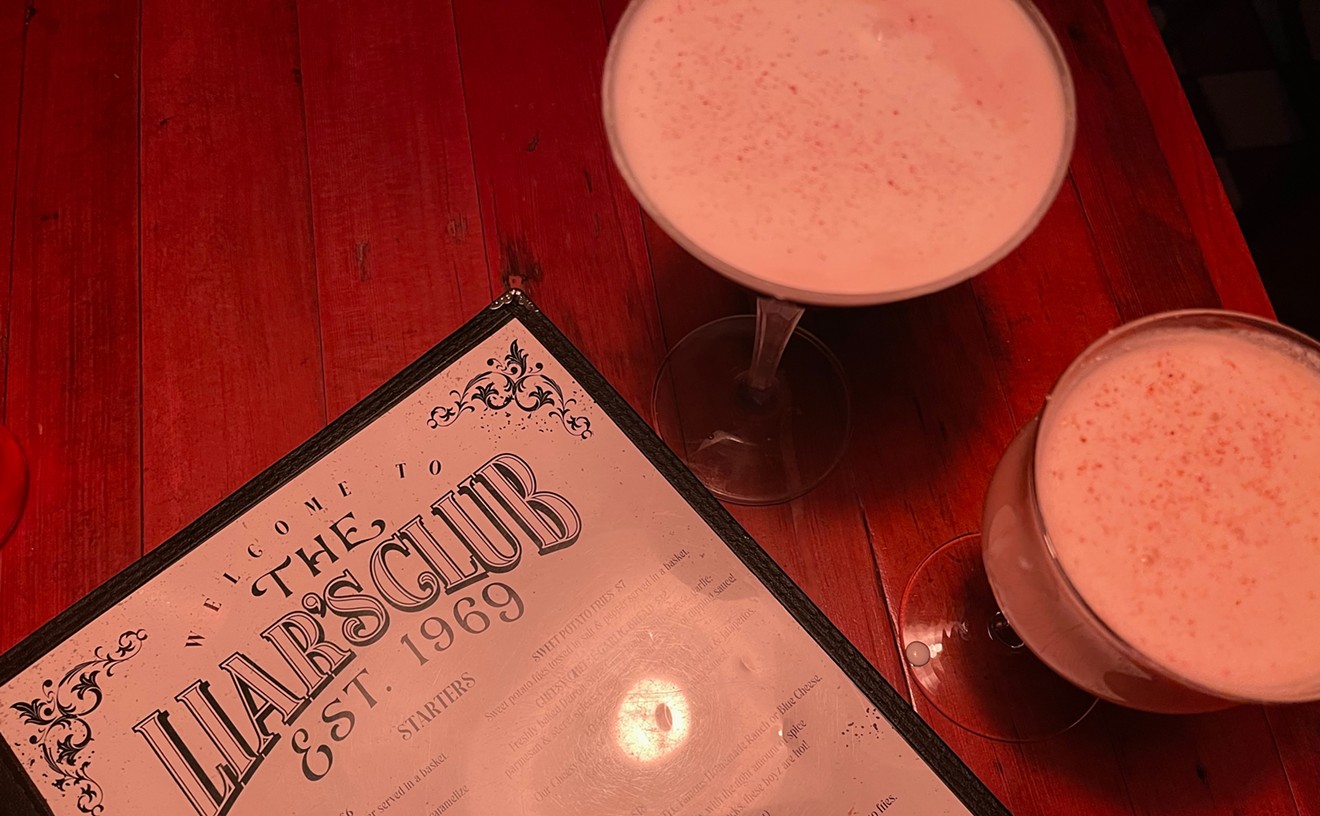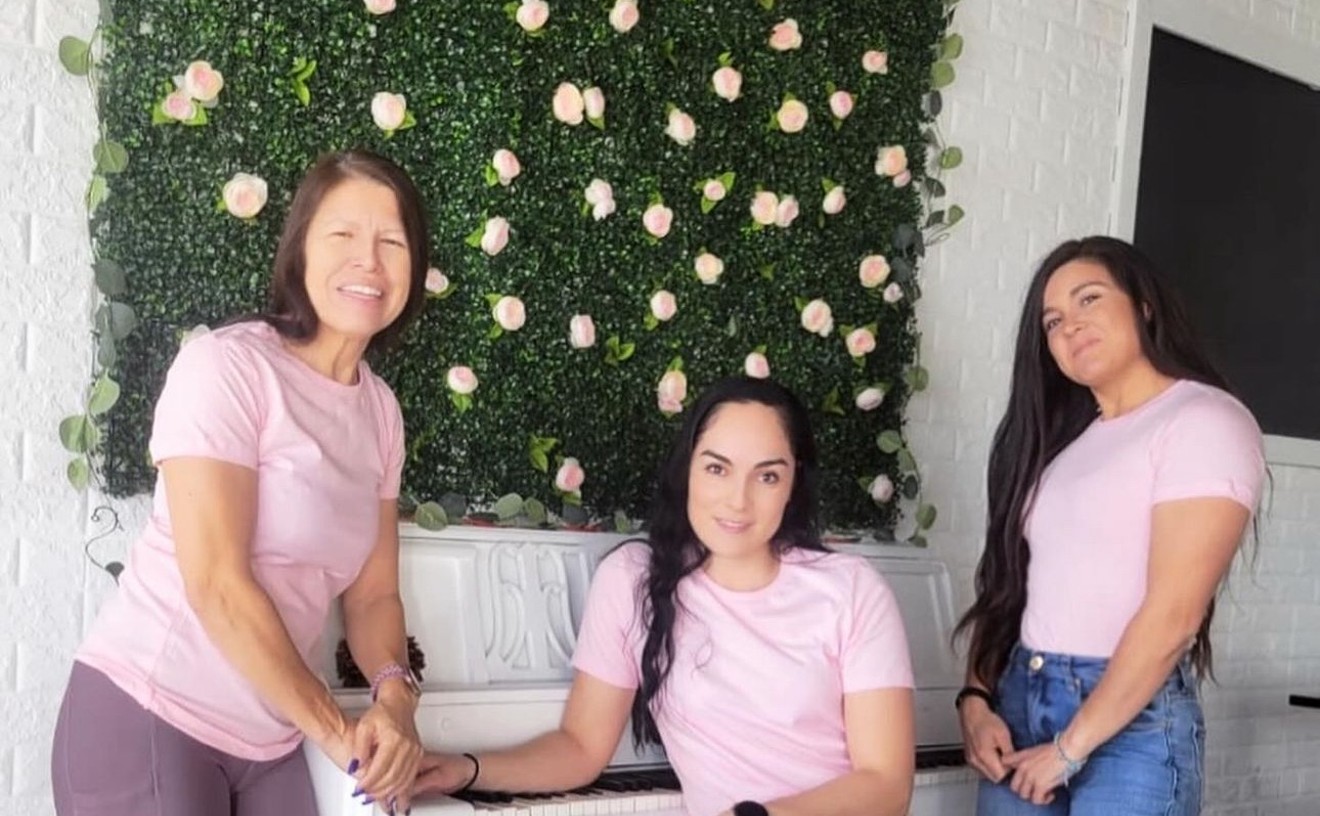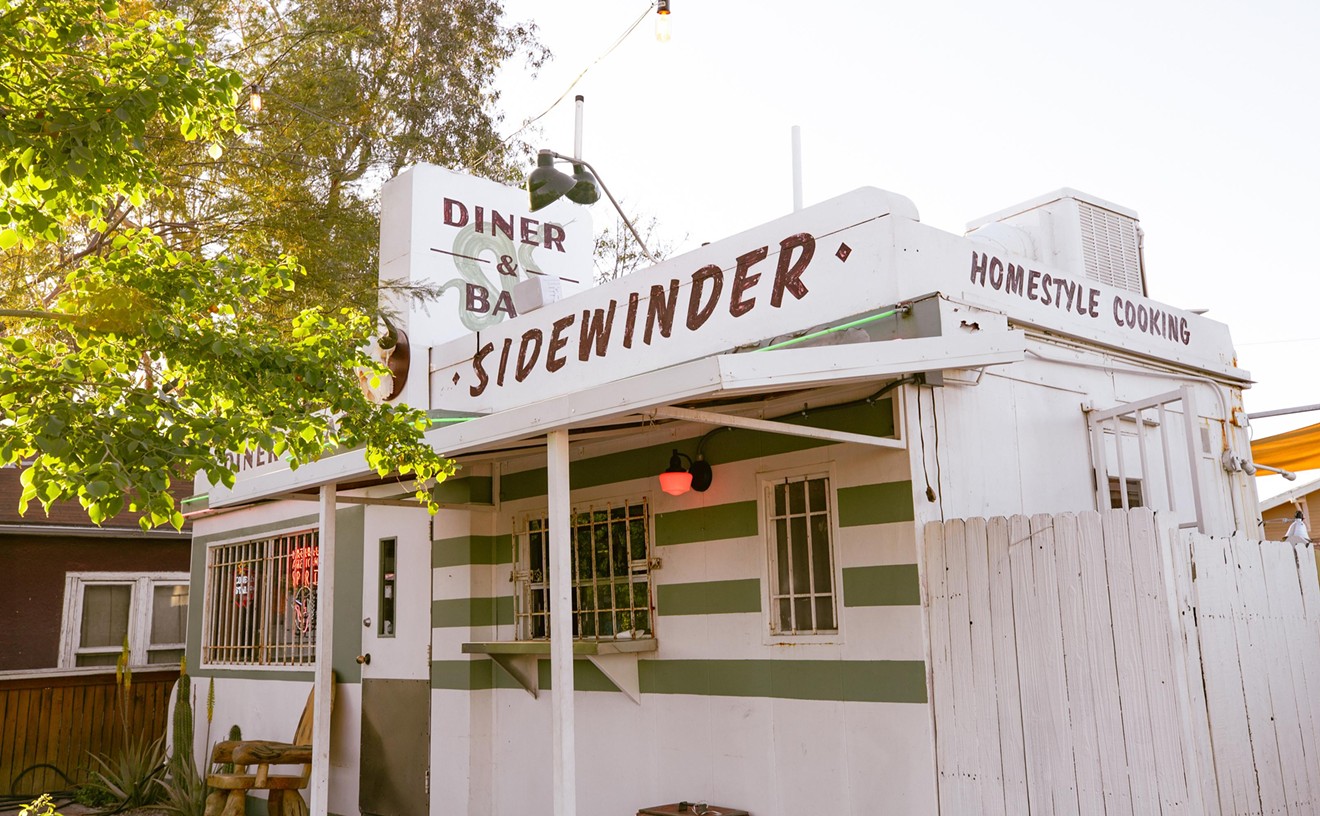There is a point at which night turns to day. It's barely visible to the naked eye, but in that smallest of moments while the moon is still full and the sun casts its first fires across the sky, a transition happens.
I know because last Sunday at 5:30 a.m. I witnessed it while checking on the coals of a $15 used Brinkman smoker in my backyard.
As Music Editor Martin Cizmar mentioned in his last post, I have been roped into volunteered to help him put his money where his mouth is, so to speak, and try to rustle up some grub worthy of the judging panel at this weekend's Arizona BBQ Festival.
We're not chefs. Hell, we're barely cooks, but after last weekend we're in much better shape for this competition. Here, for our vindication and your reading pleasure is some of what we have learned.
Like most culinary endeavors worth partaking in, this one started with some advice from culinary guru and Food Network personality Alton Brown. We watched an episode of his show "Good Eats" in which he broke down the necessary equipment for smoking pork butt (which is actually the shoulder).
Always use a ceramic smoker and be sure to let your meat soak in a brine for four to eight hours, said Mr. Brown. Well, we had a pathetic metal smoker and we started cooking at 8 p.m. so we had to improvise.
While we prepared the smoker we did create a brine of water, pickling salt and molasses. Thirty minutes of brine time has to be better than none at all, right? Post-brine all meats received a rub or marinade -- lots of citrus for the chicken, mustard and spices for the pork and a Texas-style dry rub for the brisket and ribs that included spicy oriental mustard powder.
One of the primary lessons I learned from my BBQ-enthusiast of a comrade is "if you're lookin' you ain't cookin'."
We looked a lot. Is it still smoking? I wonder if the coals are still going? Does it need more wood chips? These questions inevitably led to pulling open the lid and lowering the temp on what would have likely been perfectly tender BBQ if left alone. The upshot of this was that we learned the coals do in fact need to be changed every 2.5 hours.
Of course, you have to have additional coal to do that.
Were you aware that Walmart's garden center closes at 8 p.m.? Unfortunately, that's also where they keep their charcoal. This led to another lesson (which I will leave up to you to decide how relevant it is to BBQ): In the pursuit of good BBQ one must not let any obstacle stand in one's way. This includes closed, but, crucially, unlocked doors to the Walmart garden center, which, once pulled apart by brute strength, leads one to coal and other BBQ implements. (Don't worry, we did pay.)
Back at the homestead, a quick change of the coals lead us into the kitchen where we composed a BBQ sauce.
Now, the truth is that brisket is better without sauce, and being from Texas, I would prefer not to sauce my ribs either, but for the sake of appealing to a vast audience (and because I really wanted to try my hand at building a sauce) we made one. There is a basic BBQ sauce recipe on page 90 of The Joy of Cooking. Frankly, it's begging to have additional flavors added to it. I chose blood oranges and roasted Anaheim peppers.
I'd tell you the specific ingredients and technique, but BBQ is better when it's kept moist and tender by a veil of secrets.
The following hours were full of contemplating how tired we were, and checking the smoker every two hours or so until we reached 8 a.m. This was the magic hour when we would find out if indeed triumphed in our quest for delicious Q. Of course, it also led to another BBQ lesson: One must be true to one's self.
In barbecuing, the strategy is to smoke meats low and slow to dissolve the fatty and connective tissue into a gelatin. This is the difference between eating tender BBQ and munching on your car tire. Nothing that came out of our smoker was as tender as we hoped. The ribs came out the best. The brisket showed signs of dissolving connective tissues. The pork, however, could not be pulled. All signs pointed to more heat, more time, more brine and less time looking under the hood.
Have we learned the ways of barbecue well enough to bring home any amount of glory at this weekend's competition? Hell if I know. Why don't you grill me afterward?










